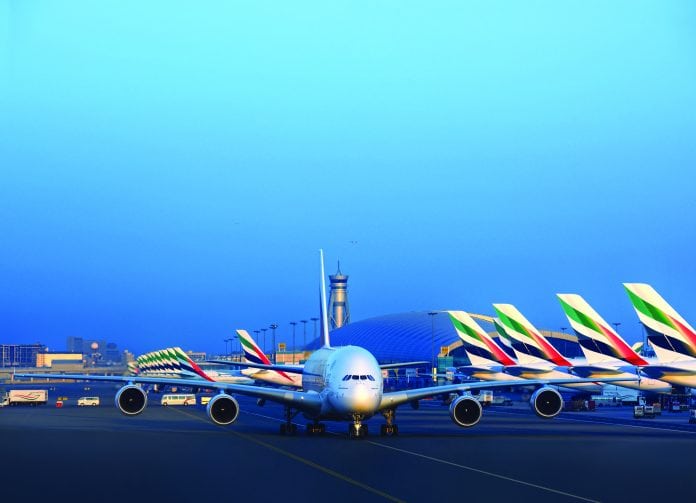
Flight diversions and network disruptions due to unauthorised drone activity in the airspace around Dubai International airport (DXB) cost Emirates airline millions of dirhams on each occasion, and impact thousands of passengers.
Adel Al Redha, Emirates’ Executive Vice President and Chief Operations Officer said: “Flight diversions and extensive holding are costly. Financial aspects aside, there is huge inconvenience to passengers, and also a negative impact on Emirates’ reputation. Sending an aircraft to an alternative airport and managing delays to arrivals or departures are not as straightforward as it sounds. There is always a ripple effect on the rest of our hub operations in terms of securing our passengers’ flight connections, ensuring our disrupted customers are cared for, planning the return of aircraft to support other scheduled flights, and a myriad other arrangements to manage the disruption from crew to catering to ground handling.”
There have been three separate incidents since June this year involving the closure of airspace at DXB due to authorised drone activity. Earlier this week (29 October), Dubai International airport was closed for 80 minutes, resulting in the diversion of 22 inbound flights, including 11 operated by Emirates airline.
The affected Emirates flights diverted to other airports in the UAE, and these aircraft later returned to DXB with delays ranging from 2 to 4 hours. The knock-on effect of the airspace closure impacted two later Emirates flights which also had to be diverted while the world’s busiest international airport worked to restore normal schedules. In addition, other inbound flights were on hold due to airspace congestion and outbound flights were delayed to accommodate connecting passengers after the airspace re-opened. More than 5,000 Emirates passengers were inconvenienced on this occasion alone.
In September, DXB was shut down for half an hour because of unauthorised drone activity, resulting in delays to 85 Emirates flight departures, chalking up a cumulative delay of over 57 hours (or an average delay of 40 minutes per flight), affecting thousands of passengers travelling during the morning peak period. In June, the airport was closed to aircraft for more than an hour also because of a drone incursion, resulting in numerous flight delays and diversions, including 13 flight diversions for Emirates alone.
Mr Al Redha added: “Safety is always the number one priority in our business. Ensuring safe flight operations by closing the airspace when there is unauthorised drone activity, or other airspace incursions, is the right thing to do. However, the safety risk from unauthorized drone activity, and the resulting disruption to customers and operations is unacceptable. We request the authorities to take strong measures and impose penalties to discourage future occurrences, and also consider implementing drone detectors at the airport.”






















![The Square at Nad Al Sheba Gardens Now Open hope tax season treated you well! Just checking in—ready to refocus on growing your business? I remember how we discussed scaling your [specific aspect of their business, e.g., online presence] but paused due to time constraints. We now offer a streamlined 6-month plan that delivers real results without adding to your workload. Let me know if you'd like to chat—I’d love to help you pick up where we left off!](https://www.dubaichronicle.com/wp-content/uploads/2024/11/The-Square-5-218x150.jpg)









